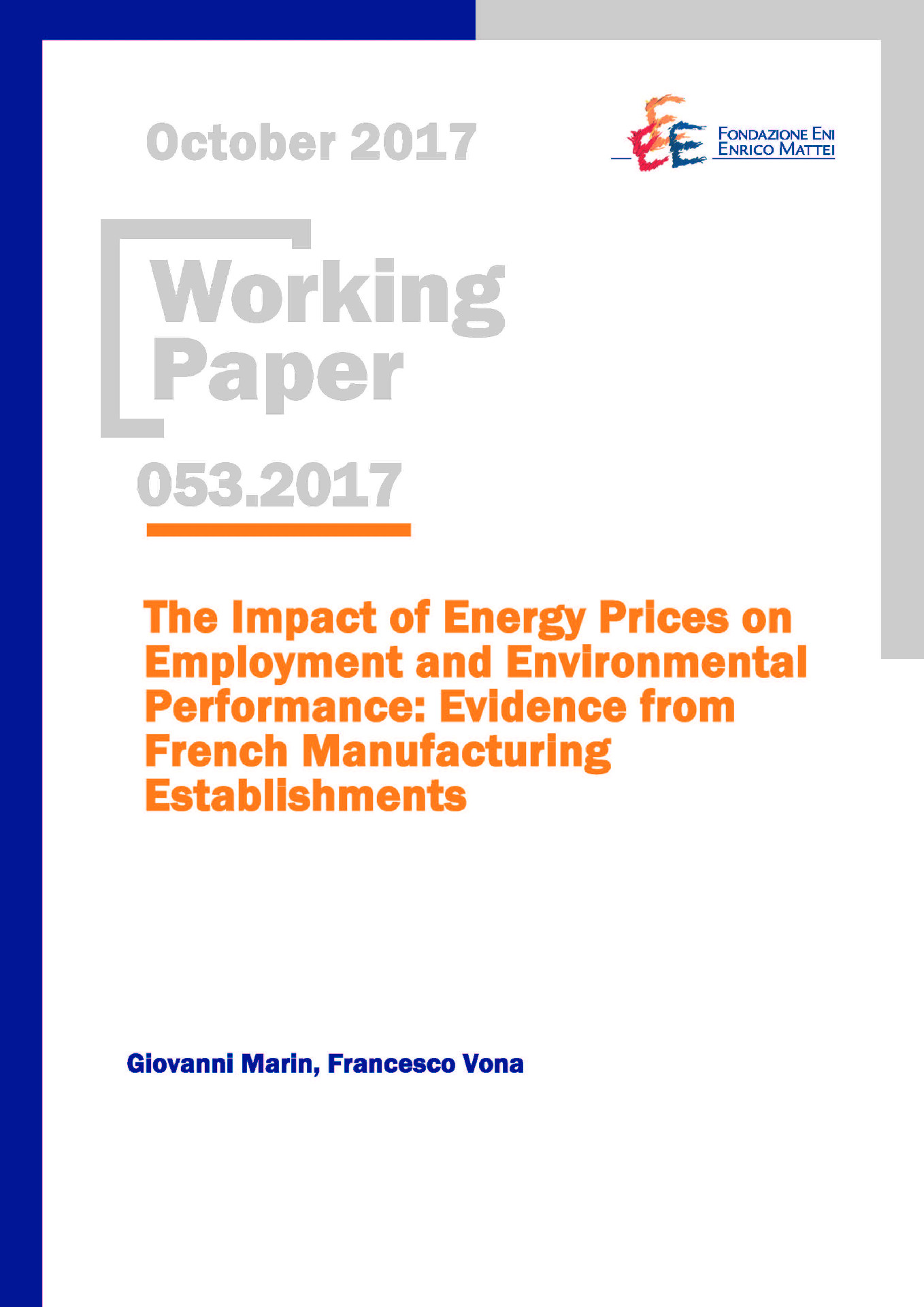The Impact of Energy Prices on Employment and Environmental Performance: Evidence from French Manufacturing Establishments

30.10.2017
Giovanni Marin (University of Urbino ‘Carlo Bo’, SEEDS); Francesco Vona (OFCE-SciencesPo, SKEMA Business School)
Q52, Q48, H23, D22
Energy Prices, Establishment Performance, Environmental and Energy Policy
Energy Scenarios and Policy
Manfred Hafner
This paper evaluates the historical influence of energy prices on a series of measures of environmental and economic performance for a panel of French manufacturing establishments over the period 1997-2010. The focus on energy prices is motivated by the fact that changes in environmental and energy policies have been dominated by substantial reductions in discounts for large consumers, making the evaluation of each policy in isolation exceedingly difficult. To identify price effects, we construct a shift-share instrument that captures only the exogenous variation in establishment-specific energy prices. Our results highlight a trade-off between environmental and economic goals: although a 10 percent increase in energy prices brings about a 6 percent reduction in energy consumption and an 11 percent reduction in CO2 emissions, such an increase also has a modestly negative impact on employment (-2.6 percent) and very small impact on wages and productivity. The negative employment effects are mostly concentrated in energy-intensive and trade-exposed sectors. Simulating the effect of a carbon tax, we show that job losses for the most exposed sectors can be quite large. However, these effects are upper bounds and we show that they are significantly mitigated in multi-establishment firms by labor reallocation across establishments.
***
Suggested citation: Marin, G., F. Vona, (2017), ‘Quantifying Non-cooperative Climate Engineering’, Nota di Lavoro 53.2017, Milano, Italy: Fondazione Eni Enrico Mattei
